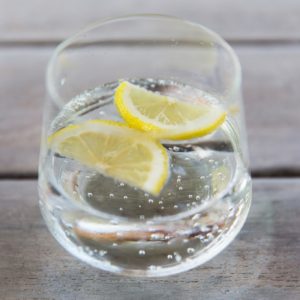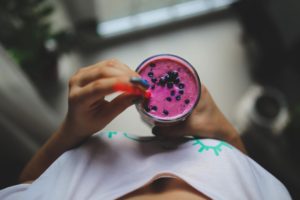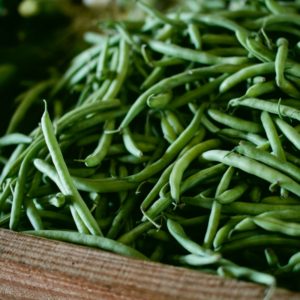You won’t hear me talk about dieting in any of my posts, restricting calories, or suggestions for “low-fat” foods. What you do hear me talk about, is eating whole foods that your body can easily break down and assimilate the nutrients it needs for health and vitality.
However, losing weight is a common health goal of many people and there are many fad diets about there that can place greater stress on your body, causing it to retain fat or disrupt your metabolism more than if you had not gone on the diet in the first place. It can lead to a dangerous cycle of feelings of failure, frustration, hopelessness, and an unhealthy relationship with food.
January is the time of year where New Years Resolutions come into play and gym memberships and diet plans make their money. At this time, it can be confusing to know what is the best thing to eat when there is so much contradictory information within the study of nutrition.
To help pull back the curtain and to simplify things; I have a list of easy tips to support your body in a safe and gentle way towards shedding unwanted pounds while supporting the body’s natural metabolism, increasing energy, and improving immune functions. Add some or all of these into your current lifestyle plan to find a natural, healthy weight for you without adding stress on your system.
-
Drink 8-10 glasses of filtered water a day. I know it sounds so simple, but 70% of our bodies are composed of water. Water is the principal component in almost all the bodily functions and without it, we would die. Toxins build-up in our body naturally as a result of metabolic functions (endogenous) and external factors such as pollution, chemicals in our food, or cosmetics (exogenous). Toxins are stored in our fat cells, so ensure you drink
 lots of water each day to aid the body to remove toxins and function optimally. If you are someone who finds drinking water boring, check out my 7 fruit-infused water recipes to make it easy get in your daily water intake.
lots of water each day to aid the body to remove toxins and function optimally. If you are someone who finds drinking water boring, check out my 7 fruit-infused water recipes to make it easy get in your daily water intake. -
Before you reach for your first cup of coffee, start every day with 2 cups of room temperature filtered water and the juice of half a lemon. This is a gentle way to wake up your digestion, gently detoxify your liver, and increase HCl production in the stomach so that food is properly broken down.
-
Improving your digestion is also important as improper food breakdown of
 leads to poor overall nutrition and deficiencies which in turn can lead to cravings, overeating, and potential disease. A simple technique is to practice chew your food. I know that sounds too easy but most of us chew less than 5 times per bite where research states we need to chew around 30 plus times to properly break down our foods. Not only does proper chewing take stress off the entire gastrointestinal system and reserve energy, but it also provides more time for the brain to receive the satiety signal to pass more quickly, reducing the risk of overeating.
leads to poor overall nutrition and deficiencies which in turn can lead to cravings, overeating, and potential disease. A simple technique is to practice chew your food. I know that sounds too easy but most of us chew less than 5 times per bite where research states we need to chew around 30 plus times to properly break down our foods. Not only does proper chewing take stress off the entire gastrointestinal system and reserve energy, but it also provides more time for the brain to receive the satiety signal to pass more quickly, reducing the risk of overeating. -
Eat foods that are live and full of enzymes. These types of foods such as leafy greens and citrus aid the breakdown process of food and help reduce belly bloat, gas, and intestinal troubles. They also are usually packed with fiber which supports a healthy weight.
-
Fiber is important for good colon health and like water, supports the body in removing toxins that would normally be stored in fat cells. During weight-loss, we release these toxins so it is essential to increase our fiber intake to ensure we remove these toxins from the body. Both soluble and insoluble fiber are important for healthy bowel movements so enjoying eating whole foods daily such as an apple, asparagus or avocado are a great way to get in both.

-
Balancing our blood sugars can also help with cravings. It is important to have a complex carb and protein at breakfast to start your day off right. Adding a healthy fat to a meal can slow down digestion and reduce blood sugar spikes. Also adding chromium based foods such as cinnamon has been suggested to play a role in balancing blood sugars. Add a sprinkle to morning oats or to apple slices is an easy way of introducing this nutrient into your diet.
-
Yes, Exercise is important. Exercise improves metabolism, vitality, and lowers that important “set point”, allowing us to maintain a lower amount of body fat. Exercise also allows us to improve endurance, increase energy, and allows us to manage
 day-to-day stress more effectively. This does not mean you need to start out by working out 5 days a week, it means you need to start where you are comfortable. Start by introducing an activity into your week that you enjoy and where it makes the most sense so it fits seamlessly into your life. Once it becomes part of your routine, you are more likely going to stick with it and then you can increase your activity level as you go.
day-to-day stress more effectively. This does not mean you need to start out by working out 5 days a week, it means you need to start where you are comfortable. Start by introducing an activity into your week that you enjoy and where it makes the most sense so it fits seamlessly into your life. Once it becomes part of your routine, you are more likely going to stick with it and then you can increase your activity level as you go. -
Increase foods that are whole, plant-based and consume good quality protein. While you are also avoiding foods that are processed, refined, and made of white
 sugar or flour. Increasing the nutrient density of your foods gives your body the tools it needs to function properly and reduces the amount of energy the body expels trying to break down and remove chemicals we introduce through packaged food-like products.
sugar or flour. Increasing the nutrient density of your foods gives your body the tools it needs to function properly and reduces the amount of energy the body expels trying to break down and remove chemicals we introduce through packaged food-like products. -
Introduce meal-tapering. This is eating more in the morning and reducing the calories as the day goes on. Eating a lighter meal at dinner time and not eating again after 8 pm till the next morning. This allows the body to rest and repair overnight while you sleep instead of trying to break down your late night pasta. We want the energy in our body to use towards repair and rejuvenation of health and not be towards digesting food while you sleep. This method also means you are providing your body higher nutrition when you have greater demands during the day while you are awake and active, and less when we are going to bed. Our food is our fuel, so fill up to enjoy energy during the day and put less in the tank when you are planning to park for the night.
-
Practicing relaxation techniques always sound like the soft and fluffy strategy that many people ignore. However, stress is a huge contributor
 to weight gain and to why it can be so hard to lose the weight despite all your great efforts. Stress causes the release of cortisol, a steroid hormone that signals your body to basically hold onto fat for survival. This is often where we see that thick band of abdominal stress-type fat build up around us, known as our “spare tire”. Stress reduction techniques are extremely important to add into a healthy routine and should not be ignored. It can be as simple as closing your door at work, closing your eye’s and taking 5 minutes to calm yourself and take deep breaths, taking a yoga class, or having an Epson salt bath with essential oils. It can be taking quiet time for yourself doing whatever it is that makes you happy! If you need ideas check out the article here on self-care techniques and 7 ways to reduce stress.
to weight gain and to why it can be so hard to lose the weight despite all your great efforts. Stress causes the release of cortisol, a steroid hormone that signals your body to basically hold onto fat for survival. This is often where we see that thick band of abdominal stress-type fat build up around us, known as our “spare tire”. Stress reduction techniques are extremely important to add into a healthy routine and should not be ignored. It can be as simple as closing your door at work, closing your eye’s and taking 5 minutes to calm yourself and take deep breaths, taking a yoga class, or having an Epson salt bath with essential oils. It can be taking quiet time for yourself doing whatever it is that makes you happy! If you need ideas check out the article here on self-care techniques and 7 ways to reduce stress.
There are many crazy diets out there that will attempt to convince you that their diet is the right answer for you, and maybe it is. There are 7 billion people on the planet and 7 billion different biochemical bodies that all need something different. So before you jump on only eating once a day, eating strictly baby food, or eating a meal with 2 hot dog wieners and a bowl of ice cream?!?!? Try and introduce these 10 simple and safe tips into your existing diet and lifestyle that have been proven to have effective results for weight-loss and improve your overall health.
References:
Dr, Haas & Levin, (2006).Staying Healthy with Nutrition: The Compete Guide to Diet & Nutritional Medicine.
Dr. Murray & Dr. Pizzorno (2015). The Encyclopedia of Natural Medicine. Third Edition. Tsakos, (2001), The Weight Battlefield: A Holistic Approach to Weigh Management.
Balch, Phyllis. CNC. (2005). Prescription for Dietary Wellness. Second Edition.
Tsakos, (2001), The Weight Battlefield: A Holistic Approach to Weigh Management.


